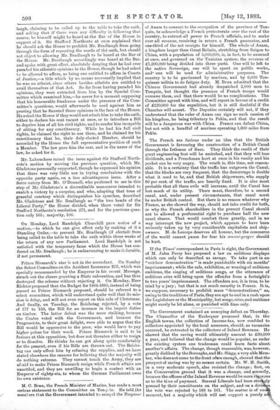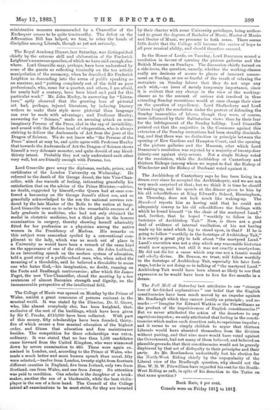The Government sustained an annoying defeat on Thursday. The Chancellor
of the Exchequer proposed that, in the English towns, the collection of Income-tax, now confided to collectors appointed by the local assessors, should, as vacancies occurred, be entrusted to the collectors of Inland Revenue. He showed that the saving would ultimately amount to £30,000. a year, and believed that the change would be popular, as under the existing system one tradesman could learn facts about another's affairs. The change, though reasonable, was, however, greatly disliked by the Boroughs, and Mr. Slagg, a very able Mem- ber, who does not come to the front often enough, showed that the prospect of saving was by no means certain. Mr. W. H. Smith, in a very moderate speech, also resisted the change ; first, on the Conservative ground that it was a change, and aecondly, because the officers of the Inland Revenue would be more rlgons as to the time of payment. Several Liberals had been stro ly pressed by their constituents on the subject, and on a divi the vote was rejected by 168 to 161. The matter is of sin moment, but a majority which will net support a purely a rninistrative measure recommended by a Chancellor of the Exchequer ceases to be quite trustworthy. The defeat on the Affirmation Bill has helped, we fear, to relax the bonds of -discipline among Liberals, though as yet not seriously.



































 Previous page
Previous page